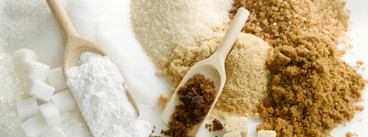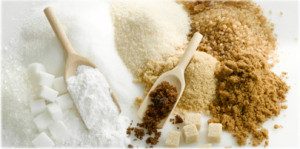In an era of wellness awareness, portraying sugar in a favorable light is a daunting task. This uphill battle to say “some sugar” is OK is made harder by the plethora of sugar substitutes out there.
Sweet’n Low, saccharin in little pink packets has long been the king of sugar-substitutes despite the 1977 warning that chemical sweetener caused cancer in laboratory rats. The FDA warning was removed in 2000 as the finding were later found to be unsubstantial.
Sweet’n Low’s monopoly as a sugar-substitute was later compromised by the brand “Equal” marketed in little blue packets to set it apart from its predecessor. Equal is mostly the sweetener aspartame which was found again to be safe for human consumption by a re-evaluation performed by the European Union 2013.
Splenda and Truvia have joined the fray with Truvia being a sugar-substitute made from the stevia plant. Although Splenda is derived from sugar it is not allowed to say so after a lawsuit leveled by competing sweetener maker, Equal.
But what if you wanted to steer clear from artificial sweeteners? If that is the case than there is one important fact to know: Sugar is Sugar. There is no such thing as a healthy sugar. Whether it is sucrose or fructose. Even the dreaded corn syrup is at its heart but fructose, making it no worse than other sugars.
Sugar is Sugar and sugar tastes good.
Everything in moderation they say. Try some half-portions of the below sweeteners to ween you off of the bleached-white, table-sugar.
Natural Organic Brown Sugar & Molasses: Organic simply means your sugar was made free of pesticides. Brown is in no way healthier than its table-sugar cousin, however it does have more flavor due to remnants of molasses in the product. Brown sugar does have a slightly lower caloric count than white sugar as well as some trace amount of minerals due to the molasses contained within. Try rimming a cocktail in some raw sugar for a candied effect. The word “candy” is derived from the Hindi word for crystallized sugar cane, “kanda”. Note: When using molasses to sweeten a drink, use it sparingly as its robust, sulfurine flavor could overwhelm a drink.
Honey: This wild, naturally made sweetener has been wowing human-beings since pre-Biblical times. The good thing about honey is that it contains beneficial enzymes and proteins. These enzymes may be the catalyst for the various health benefits attributed to honey, yet most of these benefits are unsubstantiated by the medical community. Staying local when purchasing this natural sweetener is said to allay allergies. Pair this with lemon juice for a nice marriage of a flavor-combo that mimics the “sweet & sour” taste profile so popular in children’s candies or use it to sweeten a martini that substitutes apple-cider vinegar in place of dry vermouth.
Maple Syrup: No stranger to the New Englanders, this common North American sweetener has been regulated to life a top of waffles and pancakes despite the fact that it makes a great all-purpose sweetener as well. Interestingly, Maple Syrup has small amounts of vitamins and minerals that rival those of its natural cousin Honey. Try maple syrup in your next beverage and savor its “earthy” notes. Substitute sweet vermouth for it in your next manhattan.
Agave Syrup: Agave syrup appeared during a climate of organic and natural foods. This association with health food stores lent it a reputation of being a “healthy” sugar, but alas sugar is sugar and agave syrup contains more fructose than its demonized cousin-corn syrup. That being said it is the perfect sweetener for a margarita as tequila too is made from the agave plant. Use this floral-scented honey-like, vegan product like you would any other sweetener with no allusions of it being a “healthy sugar”.
Everything in moderation they say.























